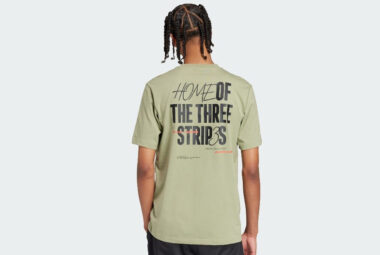
The good, the bad, and the very ugly ‘cease and desist’ letters
Branding, and the values it represents, is at the core of all businesses, so it is understandable that companies will do all they can to protect it. But what happens if someone else uses that brand without permission? The obvious answer is to stop them. But how? Trade mark attorney and partner Lucy Walker admits drafting a cease and desist letter is a potential minefield: get it right and brand value will only be enhanced; get it wrong and it could cause irreparable damage.
The good
Starting off by focusing on the best way to approach a delicate situation, in July 2012 Jack Daniel’s cease and desist letter hit the right spot and ended up in social media triumph. In 2012, Patrick Wensink released his latest novel which had a cover that looked a little too much like Jack Daniel’s signature Old No. 7 label for the distiller’s liking, but rather than starting with a heavy legal hand, Jack Daniel took a pragmatic approach:
“We are certainly flattered by your affection for the brand, but while we can appreciate the pop culture appeal of Jack Daniel, we also have to be diligent… Because you are both a Louisville ‘neighbour’ and a fan of the brand we simply request that you change the cover design when the book is reprinted.”
Furthermore Jack Daniel offered to pay ‘a reasonable amount towards the cost’ if the cover was changed sooner than the scheduled reprint.
In August 2017, Netflix was equally as eloquent when it wrote to the owners of a pop-up ‘Stranger Things’ themed bar. ‘Stranger Things’ was a hugely successful series for Netflix, so it would have been no surprise had it gone all ‘Eleven’ on the infringers. Instead it took a sensible approach by making fan references in the cease and desist letter, but at the same time clearly saying that the infringing use had to stop:
“My walkie talkie is busted so I had to write this note instead. I heard you launched a Stranger Things pop-up bar… Look I don’t want you to think I’m a total wastoid and I love how much you guys love the show… But unless I’m living in the Upside Down, I don’t think we did a deal with you for this pop-up…
We’re not going to go full Dr. Brenner on you, but we ask that you please (1) not extend the pop-up beyond its 6 week run… and (2) reach out to us for permission if you plan to do something like this again…”
The Legal 500 tweeted: “@Netflix Ends Unauthorised ‘Strange Things Bar’ – This is how a lawyer should communicate!”
‘Stranger Things’ can happen than a lawyer being applauded for their approach!
The bad
In December 2013, Starbucks took the polar opposite tactic by sending a cease and desist letter to Exit 6 Pub and Brewery, in reference to their use of the name FRAPPICINO in connection with a stout-style beer. The letter alleged that use of this trade mark infringed Starbucks’ rights in the well-known coffee trade mark, FRAPPUCCINO.
Although there was nothing untoward in the letter itself, the letter looked to be a standard and formulaic cease and desist letter which was probably issued in the majority of instances of alleged infringement of Starbucks’ rights. It was cold, impersonal, and obviously had not been tailored to the situation in hand. Nor did it offer a sensible commercial approach to bring the matter to a conclusion; it was a case of cease all use. This approach was seized upon by Exit 6 when they responded:
“I am writing in response to your letter… in regards to the ‘Frapuccino’ (at the risk of further lawsuits, hereto known as ‘The F Word’) beer…Rest assured we meant no deception, confusion or mistaking in the naming of the beer F Word. We never thought that our beer drinking customers would have thought that the alcoholic beverage coming out of the tap would have actually been coffee from one of the many, many, many stores located a few blocks away. I guess that with there being a Starbucks on every corner of every block in every city that some people may think they could get a Starbucks at a local bar. So that was our mistake… We are bad people. We feel shame…”
The apology finished with a flourish with Exit 6 enclosing a cheque for $6 for the full amount of the profit gained from the sale of three beers under the F Word brand as a contribution towards Starbucks’ legal fees.
The downright ugly
BrewDog found itself in a dog fight that they perhaps wish they had not em-barked on earlier this year.
Having registered the trade mark LONE WOLF in a logo format for an alcoholic beverage, BrewDog did not take too kindly to a bar in Birmingham when it opened under the name Lone Wolf. A cease and desist letter was sent to the owners of the Lone Wolf bar who responded by going public with the details of BrewDog’s complaint. The story picked up traction as BrewDog’s approach was widely commented on in legal publications, local and national news and social media.
The situation was exacerbated by the fact that BrewDog’s approach in its letter appeared very ‘corporate’, whereas they had always held themselves out to be the defender of the underdog and a champion of the individual business.
In response to the backlash, BrewDog’s co-founder began the process of trying to repair the damage by tweeting: “Our lawyers got a bit trigger-happy. We are happy for the Wolf Bar in Birmingham to keep using the name.” The bar was also offered free cases of Lone Wolf vodka and gin.
But BrewDog’s olive branch was re-buffed by the proprietors of the Lone Wolf bar who responded by tweeting how it was a “shame we had to spend money rebranding because of ‘lawyers’”.
BrewDog made another attempt to make amends for this public relations disaster saying: “Earlier today we contacted Lone Wolf bar and said we would not only cover all costs, but invited them up to make their own gin with us.”
Finally, BrewDog released a statement on its website:
“We paid for and trademarked Lone Wolf in 2015. The Lone Wolf Bar in Birmingham opened in January of 2017. Our wider team and legal partners, acting entirely in our best interests informed them that we owned the name and they would have to stop using it.
“However, hands up, we made a mistake here in how we acted. Almost all companies always look to enforce trademarks, whereas at BrewDog we should take the view to only enforce if something really detrimental to our business is happening. And here, I do not think that was the case. As soon as I found out, I reversed the decision and offered to cover all of the costs of the bar. I also invited them up to Ellon to make their own gin with us. This is a mistake that hurt a lot; but like all mistakes, it made us better. This will not happen again.
“All companies make mistakes, and we fixed this one quickly, openly and honestly.”
So how should a business draft a cease and desist letter that will guarantee it is not going to create a social media storm?
Unfortunately there is no magic formula as every case will be different. That’s not to say that sometimes a hard hitting, no holds barred and aggressive letter won’t be needed, but often it doesn’t hurt to think outside of the box and take a slightly different approach. Each letter will be determined by the facts of the case, so the business should carefully consider what it is trying to achieve. Some points to consider:
- Who is the infringer? Are they likely to use the letter to their advantage to gain publicity, or worse, sympathy?
- Is a letter really appropriate? Is there another way you can settle the matter without going down the road of a formal letter? Would a quick business to business chat be more effective?
- If you need to send a letter, make sure you get the tone right. Could you start with a softer approach and if this doesn’t work, then become more forceful?
- If you are writing to a business as opposed to a lawyer, make sure the recipient understands the issues and your concerns; don’t bury them in a mountain of legalese; they will not thank you if they need to instruct a lawyer when really you could have easily sorted out the matter between you.
- Be helpful, you are basically asking someone to cease trading of a particular good/service; whilst legally you are in the right, this is not going to make the situation any better for them. They will be more accommodating to your request if you are helpful.



